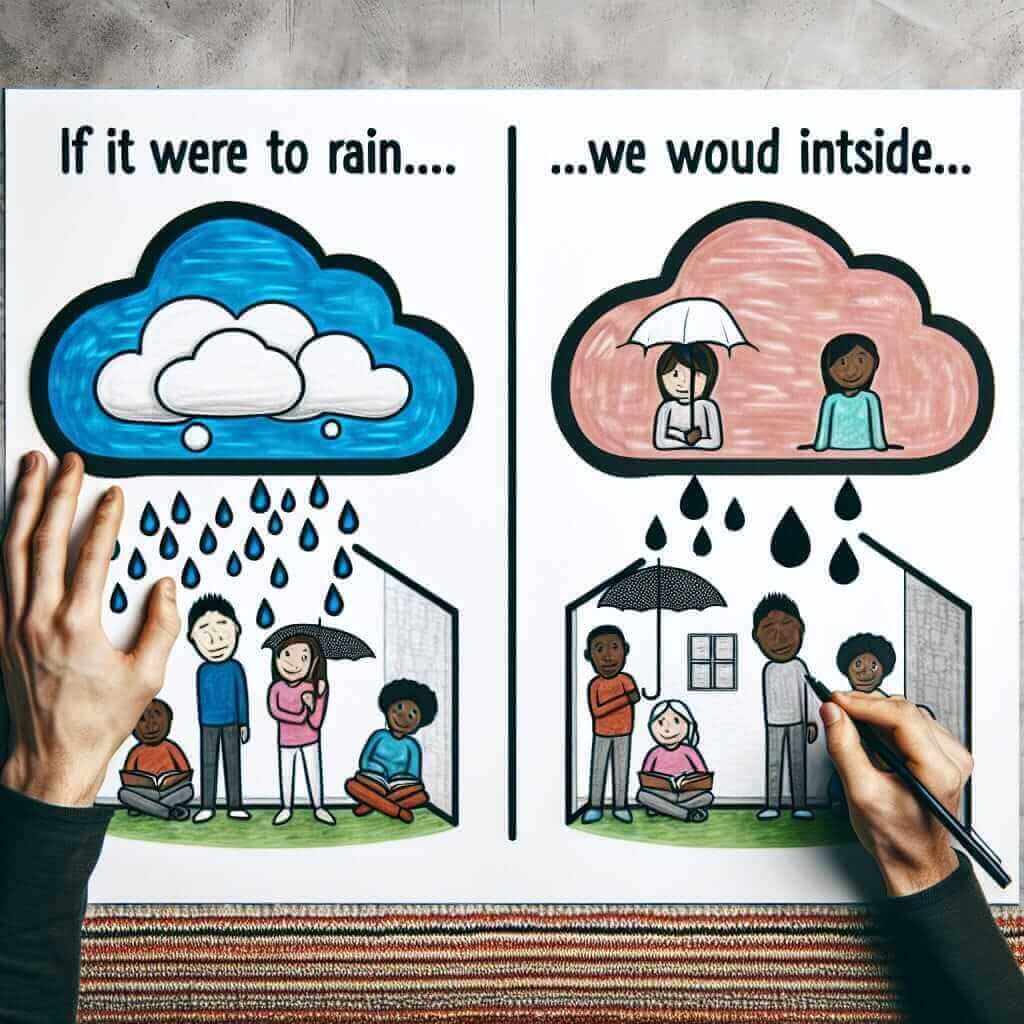Many IELTS students find themselves puzzled by sentences like “Were it to happen again, we would be prepared.” This seemingly unusual word order and use of “were” can be confusing. However, understanding this grammatical structure can significantly enhance your writing and speaking skills, leading to a higher IELTS band score.
Here are a few examples of how this structure might appear in different sections of the IELTS exam:
Speaking Part 3:
- “Were the government to invest more in renewable energy, do you think it would have a significant impact on climate change?”
Writing Task 2:
- “Some argue that stricter laws are the only way to deter crime. Were this approach to be adopted, it could lead to a decrease in individual freedoms.”
Listening Section:
- You might hear a speaker say, “Were it not for the advancements in technology, our understanding of the universe would be far more limited.”
In each of these examples, the structure is used to express a hypothetical situation and its potential consequence.
Deconstructing the Grammar: What’s Going On?
This structure is known as the inverted conditional or the subjunctive mood. It’s used to talk about hypothetical or unlikely situations in a formal and slightly literary way.
What Does It Mean?
Essentially, “Were it to happen again, we would be prepared” means the same as:
“If it were to happen again, we would be prepared.”
However, the inverted form sounds more formal and emphatic.
Mastering the Inverted Conditional
Formula and Application:
The general formula for the inverted conditional in the present tense is:
Were + subject + to + verb (base form) + …, subject + would/could/might + verb (base form).
Let’s break it down:
- “Were”: This form of the verb “to be” is used regardless of the subject.
- Subject: This is the person or thing performing the action.
- “To” + verb (base form): This indicates the hypothetical action.
- Would/could/might: These modal verbs express the potential consequence.
Examples:
- Were I to win the lottery, I would travel the world. (If I were to win the lottery…)
- Were the company to offer me the job, I would accept it. (If the company were to offer me the job…)

Utilizing the Inverted Conditional for IELTS Success
You can impress the examiner and potentially achieve a higher band score by incorporating this structure into your writing and speaking.
Writing Task 2 Example:
Topic: Some people believe that the government should provide free university education for all citizens. Discuss both views and give your opinion.
Sample Sentence: “Were higher education to be made universally free, it could lead to a more skilled workforce and a more equitable society. However, concerns about funding and accessibility would need to be carefully considered.”
Speaking Part 3 Example:
Examiner: Do you think that artificial intelligence will eventually replace human jobs?
Candidate: “That’s a complex issue. Were AI to advance to the point of fully replicating human capabilities, there would undoubtedly be significant job displacement. However, I believe it could also lead to the creation of new roles and industries that we can’t yet imagine.”
Avoiding Common Pitfalls
One common mistake is using the incorrect form of “to be.” Remember, it should always be “were” in this structure, even with singular subjects.
Incorrect: If I was to have more time, I would learn a new language.
Correct: Were I to have more time, I would learn a new language.
In Conclusion
Mastering the inverted conditional can add a touch of sophistication and formality to your language, demonstrating your command of advanced grammatical structures. Remember to practice using it in various contexts to truly integrate it into your IELTS toolkit. By understanding and applying this and other advanced grammar concepts, you can significantly improve your chances of achieving your desired IELTS score.